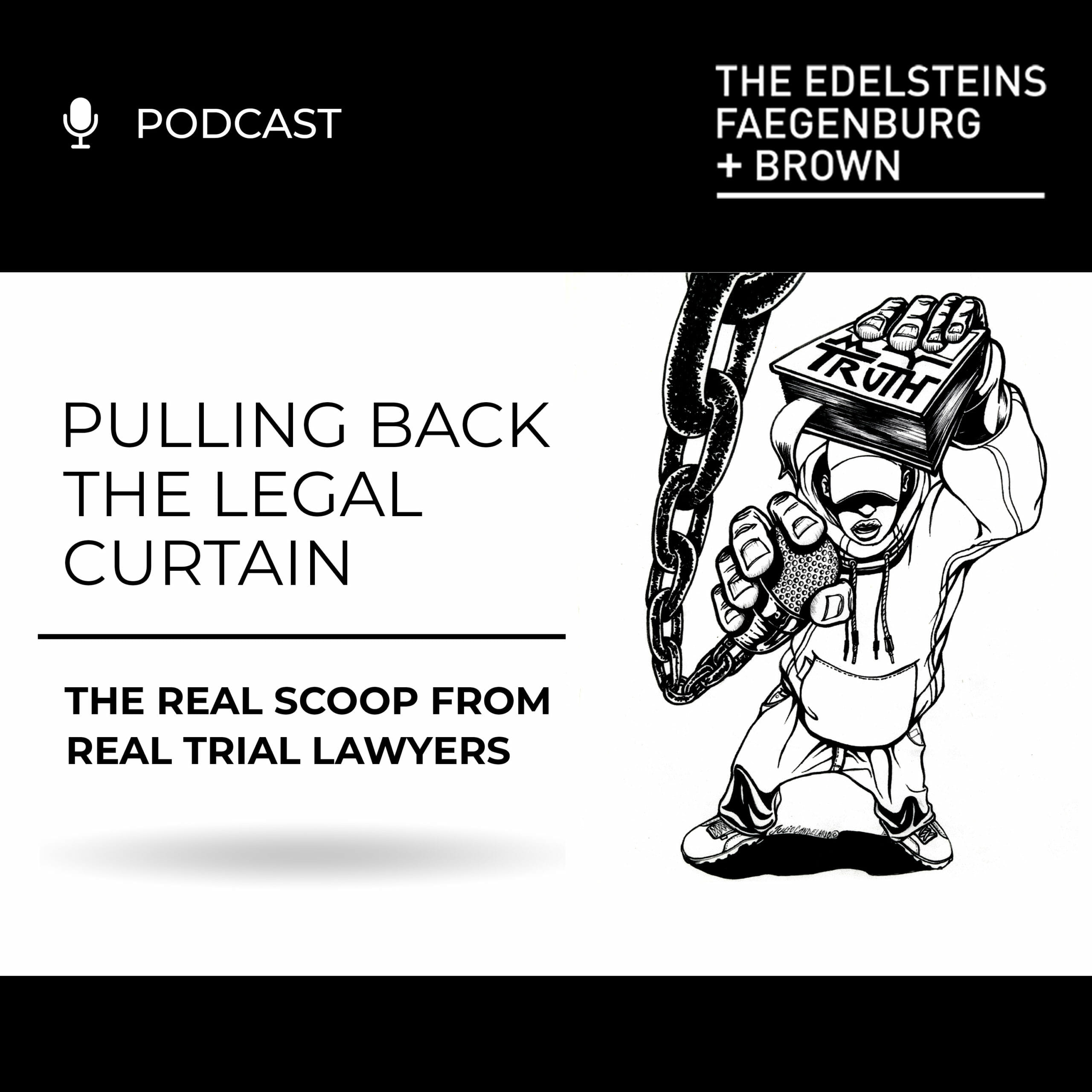Ever wonder what really goes on during trials in New York City? Join Paul Edelstein and Glenn Faegenburg, two seasoned trial attorneys from The Edelsteins, Faegenburg and Brown, for lively conversations with former judges, experts, doctors, and other trial professionals who have the real scoop on New York City’s sometimes tumultuous and always intriguing trial scene.
Podcast Transcript:
What is the recent issue and how does it relate to our past case?
Paul Edelstein:
We saw a case in the newspaper yesterday where yet another child was abused and killed, despite the fact that city agencies apparently had some knowledge that abuse was going on. There was a news conference with a lawyer and they were saying they’re suing the city. When you read the New York Post article, you obviously get the feeling “Wow, this is a horrible, horrible tragedy, and the city maybe should have done something.”
You and I, about five years ago, had a similar situation where a client came to us under very similar circumstances. A poor young kid was being abused by the mother’s boyfriend and the city agency, the ACS, the Association for Child Services, apparently was contacted in some fashion and clearly negligently responded to whatever information they were given. As far as we know, they went to the wrong address. Part of the reason they went to the wrong address was because of their training, and the call came in on a weekend. It’s just a horrible screw up by the ACS and a horrible, horrible murder by a human being that’s now in jail.
Why did we take the case?
Paul Edelstein:
Right. Because I know you handled the case and you did an unbelievable job. You actually took a verdict in front of a Supreme Court judge against this horrible murderer for $40 million, which is probably a record setting verdict taken by somebody. Of course, the guy’s in jail. You and I both know it’s unlikely that he’ll ever be able to pay this judgment or it’ll ever amount to anything. We also took the case and tried to hold the City of New York through their agency, ACS, responsible for their absolutely, complete screw up in dealing with this kid. Which you and I both agree, if it went differently, this kid might be alive today, wouldn’t you say?
Arthur Blyakher:
A hundred percent.
Paul Edelstein:
I remember when the case came to the office and we discussed it, and then we talk to our office staff, we talk to our spouses and friends, and we say, “What do you think about this?” This type of case, every person we ever ask has the same reaction. Obviously first they’re horrified, but secondly they’re like, “Wow, you guys are going to win, right? The city’s going to be responsible.” But you and I knew that we probably weren’t going to win the case against the city. And we decided to take the case anyway. You and I had debates about this, and we both felt it was important for us to take the case and try to hold the city responsible. As lawyers, we feel like that’s our obligation, to put a light on this and to try to change a law if we could, that we think is really problematic.
Why was the case fought for so long?
Paul Edelstein:
We fought for six years on this case, but we lost. I remember we told the father of this child, “Hey, we’re probably going to lose, but we’re going to try anyway.” And we did. You did an amazing, amazing job on the case. We did everything we could, and I think you did a great job. We want to shine a light in it. This law that we’re talking about is this thing called special duty. This special duty law really only benefits a few people. In this case it benefits government agencies. Why in the world can’t I sue the police if they didn’t prevent me from getting hurt or killed when I called and said this? Why couldn’t we prevail against the city when they didn’t protect this child, even though they got a call saying, “Hey, this child may be in danger.”
Arthur Blyakher:
The way the law is run, the legislator provides protection from municipal workers, for government workers, called government immunity. You cannot sue an ACS worker, a police officer, even a firefighter for regular negligence because they’re protected by government immunity. Unless they establish a special relationship, they create a special duty.
What’s the difference between a case where city workers are negligent and hit you with their car and these types of cases, police or ACS responding to a call for help?
Arthur Blyakher:
Because it’s different if you are suing them for something they did in the course of their work, in the course of their employment. If they’re carrying out their government function, they’re protected under this government immunity unless they establish a special relationship and create a special duty to the particular plaintiff.
Paul Edelstein:
Alright. Now, let’s just be clear, though. So, even if a police officer’s driving his car and he hits you even when he is on patrol, that’s different than the cases we’re talking about, right?
Arthur Blyakher:
Sure. But even in that situation, there are slightly different rules. If they’re responding to a call as opposed to just driving in the street.
Paul Edelstein:
But they don’t have absolute immunity there. So, we talk about these cases where a government agency like ACS, in this case, and the one we read in the post yesterday, get a call and some kid’s in danger or somebody’s calling the police saying, “Hey, my husband, my boyfriend, or this ex-boyfriend is threatening me, he’s going to kill me.” And he ends up doing it. Why can’t we win those cases?
Arthur Blyakher:
It’s a judgment call. They’re saying if the worker made a judgment call or did something in the course of their employment, aside from driving, those are completely different issues. But here, a police officer makes a decision not to arrest somebody and the person they didn’t arrest goes and kills somebody else, that police officer is protected in that situation. Their judgment does not expose them to liability. In our case where ACS received a report of a child being abused, they didn’t conduct the investigation in a matter that would’ve been appropriate. And that’s what the city investigator found, that they did not do the appropriate investigation. They did not carry out their job the right way, and ultimately it led to the child, in our case, his death.
Conclusion:
These are horrible cases. This is a very complex law that applies to this type of horrible case. You and I have very strong personal feelings about this law. Professionally, as lawyers, we don’t agree with it. We tried to change it. We did what we could do as lawyers to do that. And you know what? I got to tell you, I’m proud of everything you did on it and we did as a firm. It’s all you could do as a lawyer. And like you said, maybe somebody will see the verdict, or read about the case, or watch this podcast or something and say, “Wow, somebody should do something about that.” Hopefully that’s the case.
You can find The Edelsteins Faegenburg & Brown Law firm on LinkedIn.

